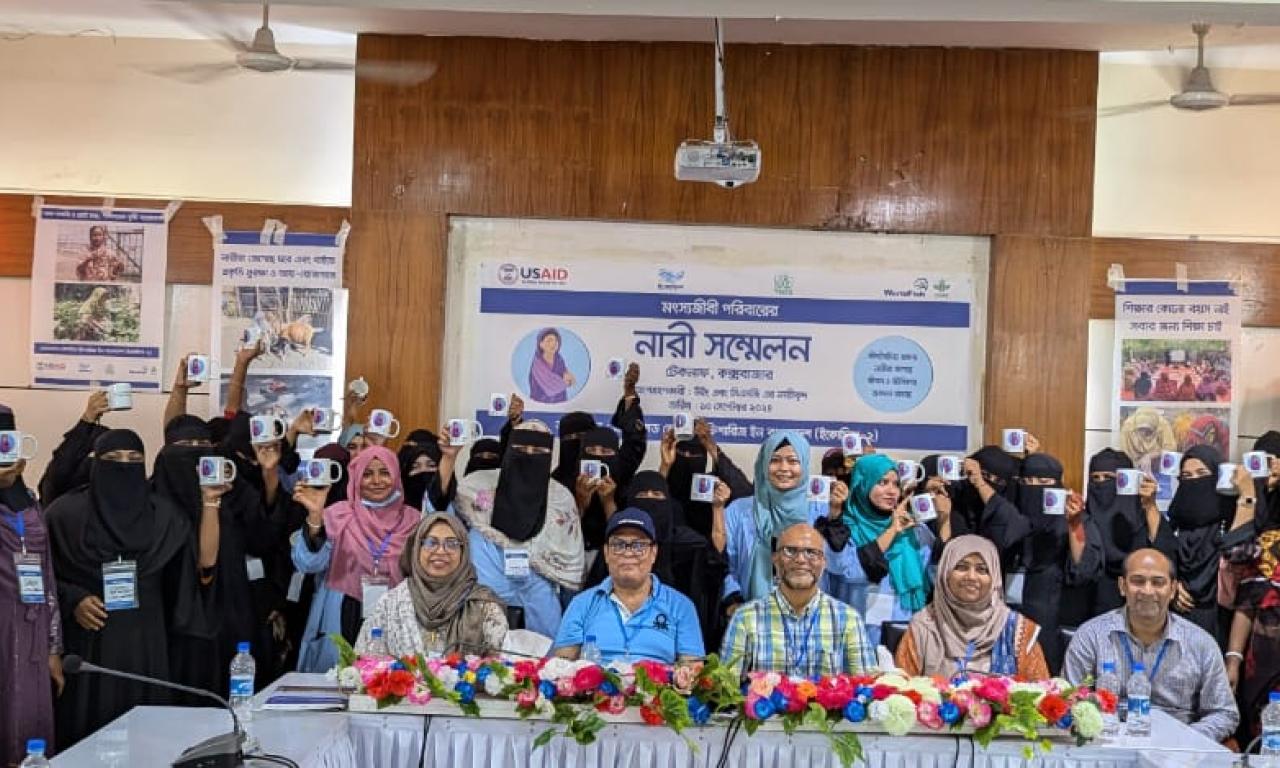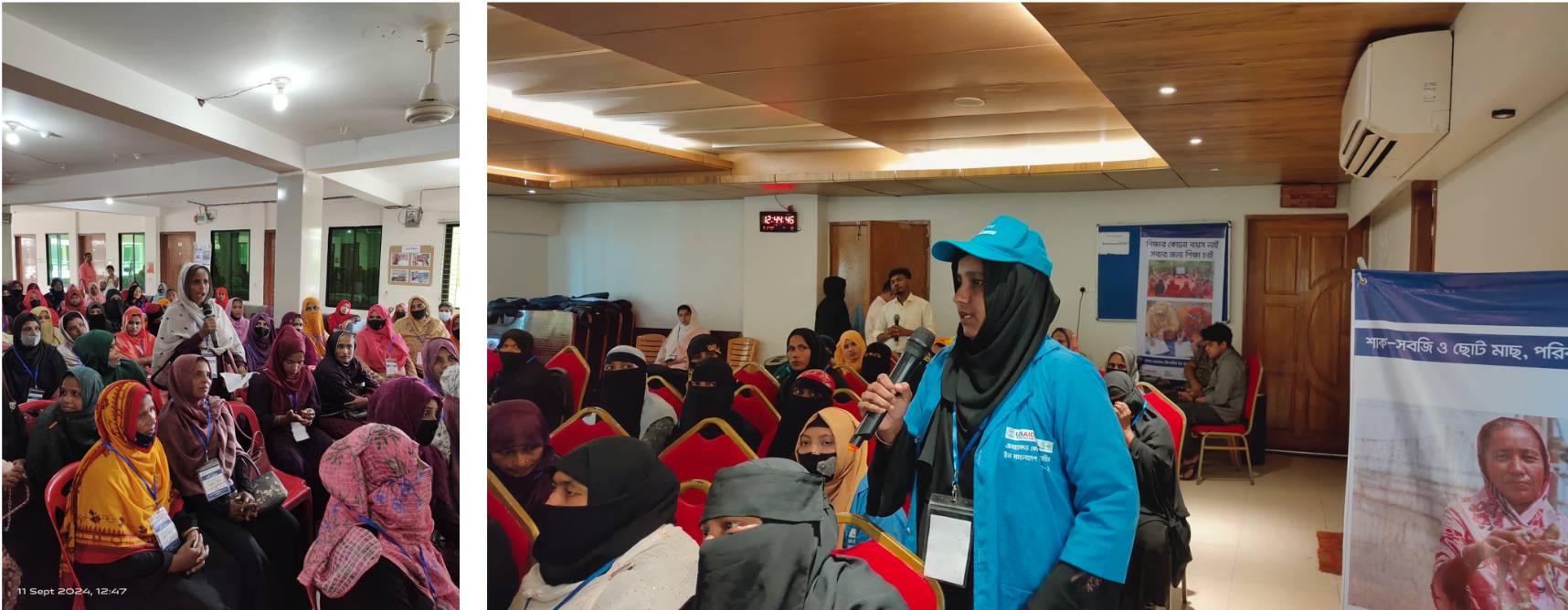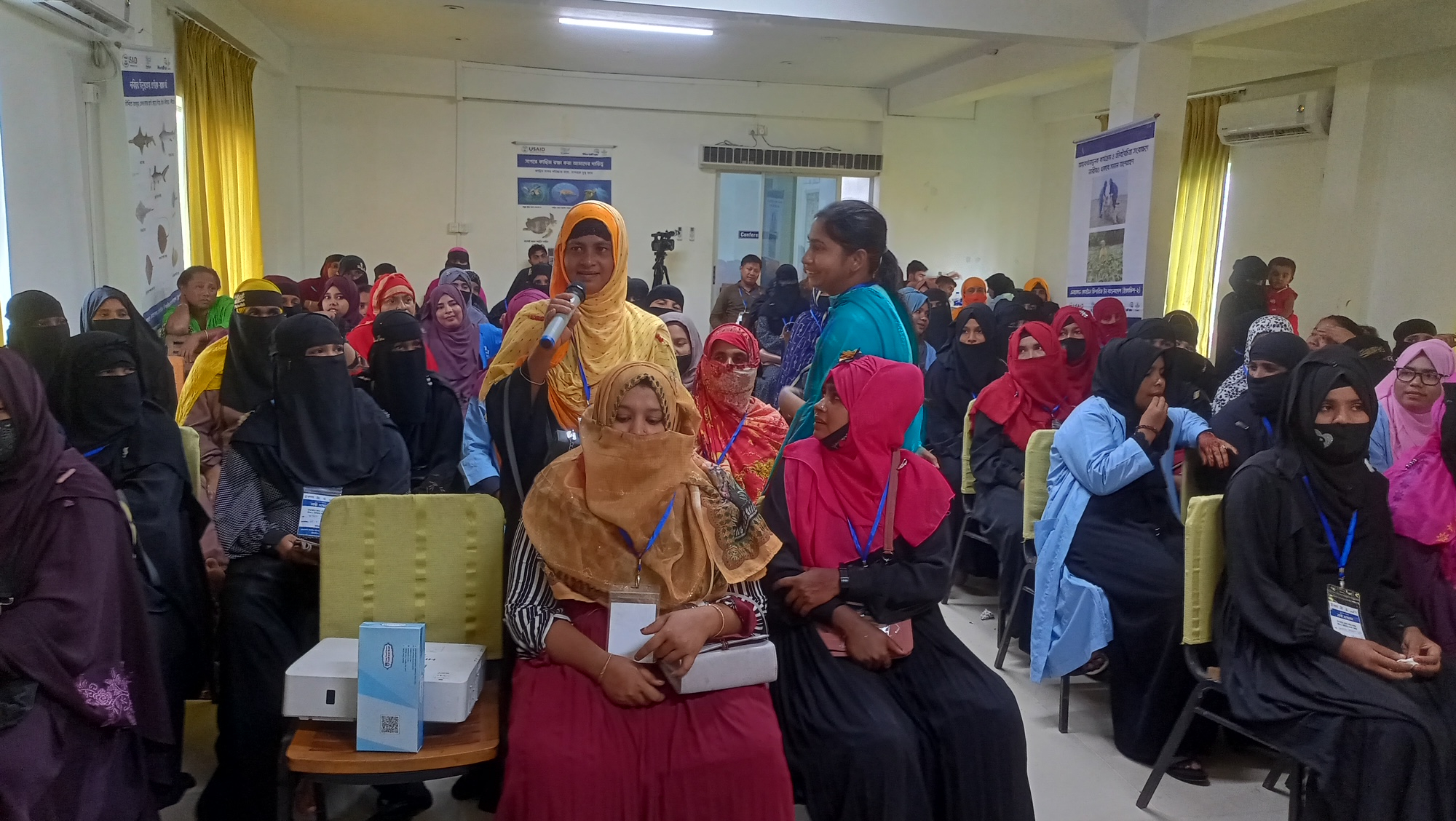
In the artisanal fishing communities of Bangladesh, women have long faced social and economic barriers that limit their role in household and community decision-making. Patriarchal norms have marginalized their voices, restricted economic independence, and deprived them of fundamental rights. USAID's ECOFISH II has supported breaking these barriers by empowering women through social networks, technical support, and financial assistance. Through initiatives like the Women Income and Nutrition Groups (WING) and Community Savings Groups (CSG), ECOFISH II has leveraged the inherent social capital of these communities to address pressing challenges. ECOFISH II is building resilient communities where women can contribute meaningfully to economic development and decision-making. This empowerment is vital to creating more equitable and prosperous futures for all.
Building Resilience through Behavioral Change
ECOFISH II's innovative interventions for artisanal fishing community women, like Women Income and Nutrition Groups (WING) and Community Savings Groups (CSG), have been a platform for 6,558 women to address and overcome their financial challenges collaboratively.
"I received financial assistance and training in income-generating activities as a project beneficiary, which supported us in overcoming livelihood challenges in several areas. My husband also received training in legal fishing practices and his responsibilities during the fishing ban periods. Before joining the Community Savings Group, I had never been introduced to saving. However, the regular meetings and discussions have motivated me to save monthly." - Altaz Begum, Cox's Bazar Sadar.

These groups provided women access to income-generating activities, savings mechanisms, and nutritional improvements while promoting leadership skills and social cohesion.
During the 65-day marine fishing ban, critical for biodiversity conservation, women receiving financial and capacity-building assistance from USAID's ECOFISH II contributed to their family's income by engaging in alternative livelihood activities. This not only offset the ban's economic impact but also highlighted women's ability to lead adaptive and sustainable strategies in challenging circumstances. These two initiatives may only be able to solve some of their issues or secure the future. Still, community women's behavioral practices could lead them to contribute and actively participate during a crisis.
Celebrating Leadership and Networking by Womens Congress

ECOFISH II has empowered women in artisanal fishing communities by building their capacity and connecting them with local service providers through WINGs and CSGs. The social capital built through WING and CSG has also fostered leadership skills, strengthened community ties, and increased women’s recognition within their families and communities. ECOFISH II has expanded women’s engagement beyond their villages by facilitating their participation in forums like the Women Congress, where they share best practices, address challenges, and explore solutions to issues like market access and sustainable IGAs. The "Women's Congress" as a vital platform for bringing together community representatives to expand networks and access Upazila-level services, empowering them with new knowledge and promoting solidarity and collective action.
This congress unites women from artisanal fishing villages, enabling the exchange of knowledge, sharing experiences, and finding solutions to common challenges. In seven events across coastal upazilas, 610 women from artisanal fishing households highlighted their achievements and discussed ways to sustain their progress beyond the project. "Women are becoming aware of biodiversity conservation, contributing to life and livelihood!" emphasizing the vital connection between environmental stewardship and social progress.
"We were unaware of the diseases affecting chickens and goats, which led to significant mortality. After receiving training from ECOFISH II, we can now identify the diseases and risks, and ensure timely vaccinations," said Shamima Akter from Kutubdia Upazila, Cox's Bazar.
Changemakers; Together in Every Step
Women Congress participants are more than just participants; they are the changemakers. This congress was more than just a meeting; it was a testament to women's growing power and influence in coastal communities. By taking the lead in conservation efforts, developing alternative livelihoods, and driving social change, these women are securing a brighter, more sustainable future for their families and the precious coastal ecosystems they depend on.
ECOFISH II extends beyond economic empowerment, fostering connections among women’s groups, government service providers, and private sector actors. By linking women to technical resources, market opportunities, and support networks, the project ensures sustainable development even after its closure. These collaborations have integrated women into biodiversity conservation and household resilience efforts.
